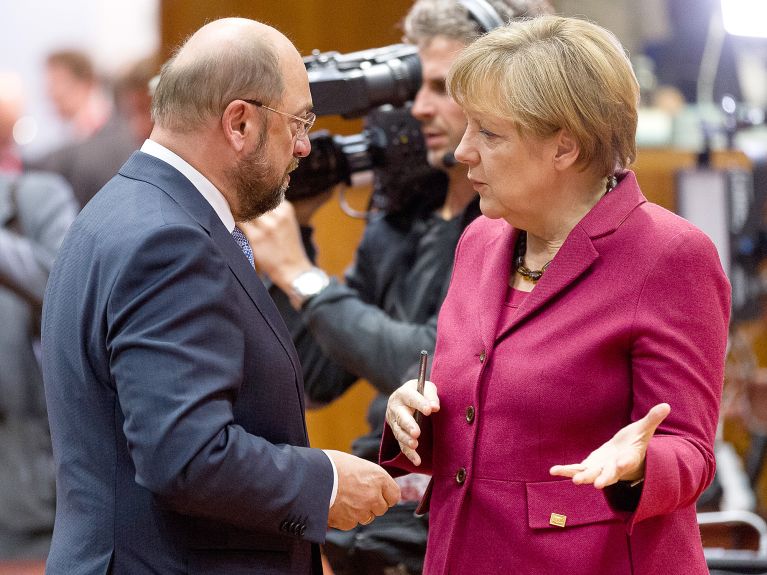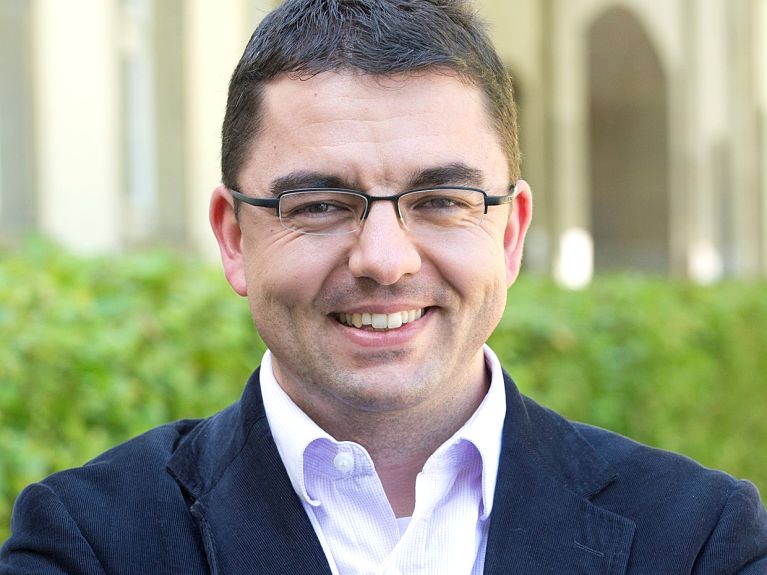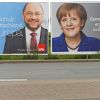What influence does the TV duel have?
Values, outward appearances and many undecided voters – an expert explains what matters in the TV duel between the Chancellor candidates.

A team around the Mainz voting researcher Thorsten Faas is studying the 2017 Bundestag election TV duel on 3 September between Chancellor Angela Merkel and her challenger Martin Schulz. The researchers will also survey real-time responses and be able to see how the candidates are acting on the audience live during the duel.
Professor Faas, to what extent can the TV duel between the Chancellor candidates Angela Merkel and Martin Schulz influence the outcome of the Bundestag election?
The TV duel in 2013 between Federal Chancellor Angela Merkel and her challenger Peer Steinbrück already had 18 million viewers; and in the 2017 election campaign the TV duel will also be the most important single event. This is because of the composition of the TV audience: the duel will be seen by many people who have never witnessed an election campaign before. The TV duel will clearly increase voter turnout and a clear victor in the debate will be able to mobilise many undecided voters. On the other hand, the influence on viewers who were already adherents of one or the other candidate will be slight. They’ll perceive the duel through partisan spectacles and see themselves confirmed in their views.

What role do superficial factors such as appearance play?
Such factors are of course noticed, but they shouldn’t be overestimated. The classic TV duel, the 1960 debate between the American presidential candidates Kennedy and Nixon, contributed to the myth that the whole thing is about outward appearances: the good-looking Kennedy went down better amongst TV viewers than the sickly and tired-seeming Nixon, who scored better with radio listeners. But much more important than outward appearances is whether the candidates succeed in tying their election platforms in with the fundamental values of the viewers and so in convincing them.
Sometimes the impressions of the TV duel are distorted by media coverage.
Are the effects of the TV duels assessed wrongly?
Sometimes the impressions of the TV duel are distorted by media coverage. For example, in the TV duel in 2005 with his challenger Angela Merkel, Chancellor Gerhard Schröder made a declaration of love to his wife Doris Schröder-Köpf. This was much discussed by the media, although the actual effect on TV viewers was rather negligible. After the 2013 TV duel, various opinion research institutes ascertained different winners.
Demoscopy is faced by the basic difficulty that the traditional survey by landline leads less and less frequently to the aimed-at result. People are harder to reach and their willingness to participate is decreasing. Moreover, voter behaviour has become more and more volatile. At present about half of German voters are undecided, and up to ten per cent will make their choice only on election day.
The interview was conducted by Johannes Göbel
